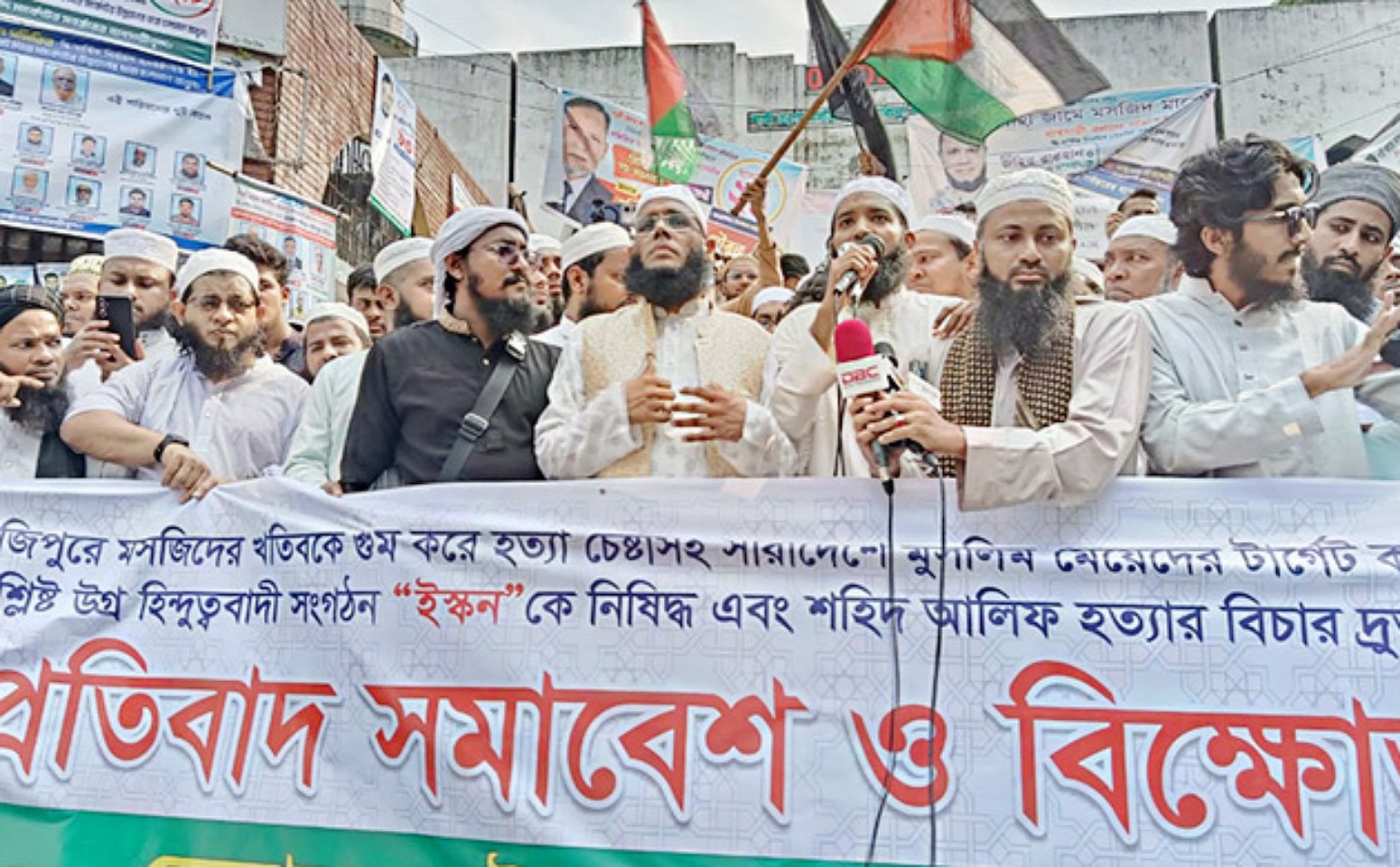
Hindu Voice Team: Bangladesh has reportedly become a “paradise for jihadists” under the interim administration of Dr. Muhammad Yunus, according to statements made during widespread protests organized by Islamist groups across the country on 24th of October, Friday.
The demonstrations, held in Dhaka and several other districts, saw hundreds of people rallying under banners calling for the ban of ISKCON (International Society for Krishna Consciousness) and raising anti-Hindu and anti-ISKCON slogans. The protests were particularly intense around the Baitul Mukarram National Mosque, where Islamist organizations staged a large rally under the banner “Tehreek-e-Tawhidi Janata.”
According to protest leaders, the current situation in Bangladesh has empowered jihadist groups, allowing them to operate openly under the guise of religious activism. Eyewitnesses reported that protesters were seen carrying symbolic weapons while chanting religious slogans.
In the aftermath of Friday’s demonstration, a group called “Ihya-e-Islam Bangladesh” also organized a protest in front of the National Press Club, reiterating demands for a nationwide ban on ISKCON and accusing the organization of “religious extremism” and “anti-Islamic activities.”
Dr. Mahedi Hasan, a member of the group’s presidium, along with Ahmed Rafiq and Islamic scholar Maulana Jasimuddin Rahmani, stated that ISKCON “is not a religious organization but a political network” that “has repeatedly incited violence and communal unrest.”
The speakers also accused the Yunus-led administration of silently supporting anti-Islamic forces while ignoring the rise of extremist elements across the country. They warned that Bangladesh’s growing radicalization is not only destabilizing the nation internally but also poses a serious security threat to neighboring India, particularly in bordering regions like West Bengal, Assam, and Tripura — areas already sensitive to extremist infiltration and illegal migration.
Regional analysts have also expressed concern that Bangladesh’s internal radical networks could expand across borders, aiding transnational terror movements in South Asia if left unchecked.
The rally concluded with calls for stronger nationwide resistance and the imposition of an official ban on ISKCON’s activities in Bangladesh.
Meanwhile, civil society activists and minority groups have condemned the protests, calling them “a dangerous escalation of religious intolerance” and urging the government to ensure the safety of all communities.